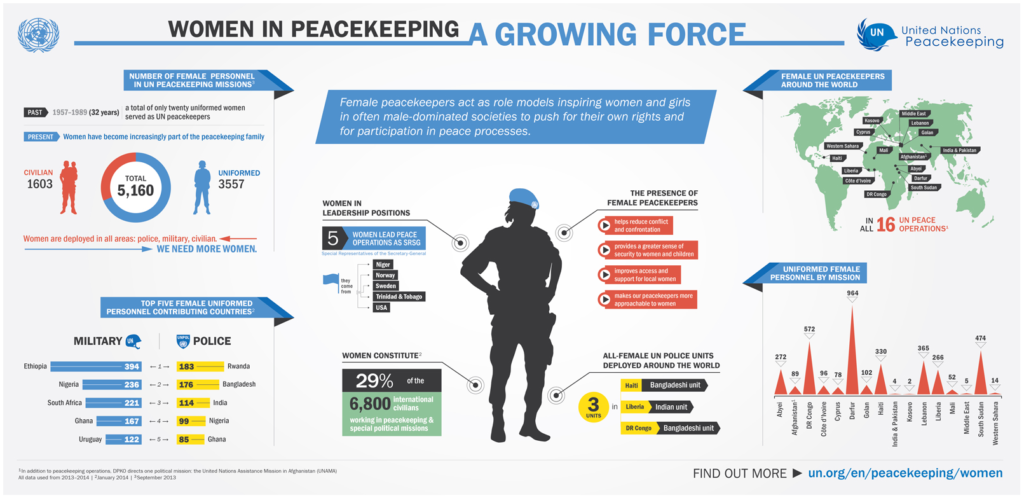This website uses cookies so that we can provide you with the best user experience possible. Cookie information is stored in your browser and performs functions such as recognising you when you return to our website and helping our team to understand which sections of the website you find most interesting and useful.
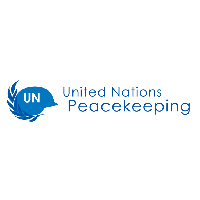
United Nations Peacekeeping helps countries torn by conflict create the conditions for lasting peace. We are comprised of civilian, police and military personnel.
UN Peacekeepers provide security and the political and peacebuilding support to help countries make the difficult, early transition from conflict to peace.
Peacekeeping has unique strengths, including legitimacy, burden sharing, and an ability to deploy and sustain troops and police from around the globe, integrating them with civilian peacekeepers to advance multidimensional mandates.
UN Peacekeeping is guided by three basic principles:
- Consent of the parties;
- Impartiality;
- Non-use of force except in self-defense and defence of the mandate.
Peacekeeping is flexible and over the past two decades has been deployed in many configurations. There are currently 16 UN peacekeeping operations deployed on four continents.
Today’s multidimensional peacekeeping operations are called upon not only to maintain peace and security, but also to facilitate the political process, protect civilians, assist in the disarmament, demobilization and reintegration of former combatants; support the organization of elections, protect and promote human rights and assist in restoring the rule of law.
Success is never guaranteed because UN Peacekeeping almost by definition goes to the most physically and politically difficult environments. However, we have built up a demonstrable record of success over our 60 years of existence, including winning the Nobel Peace Prize.
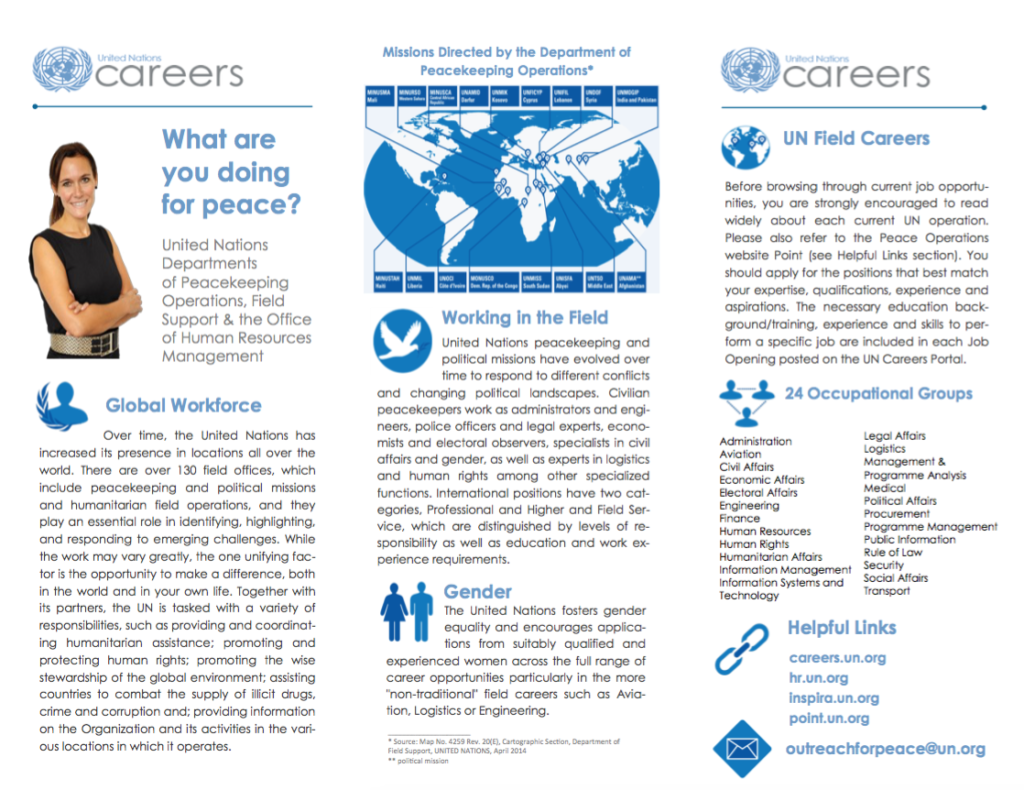
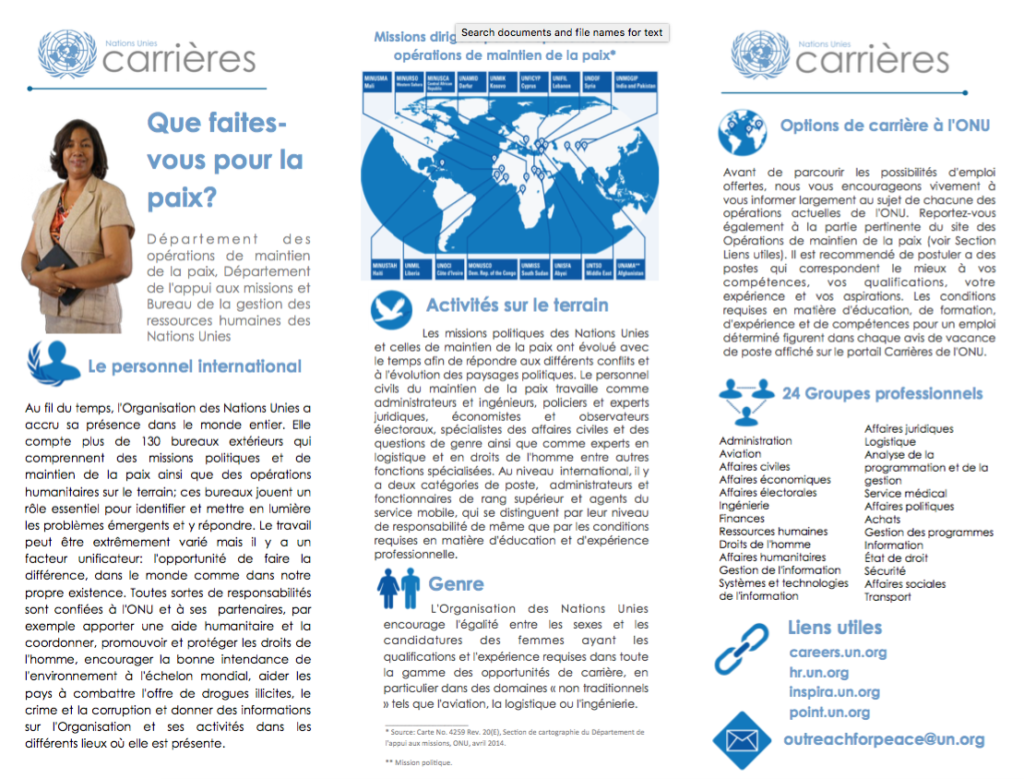
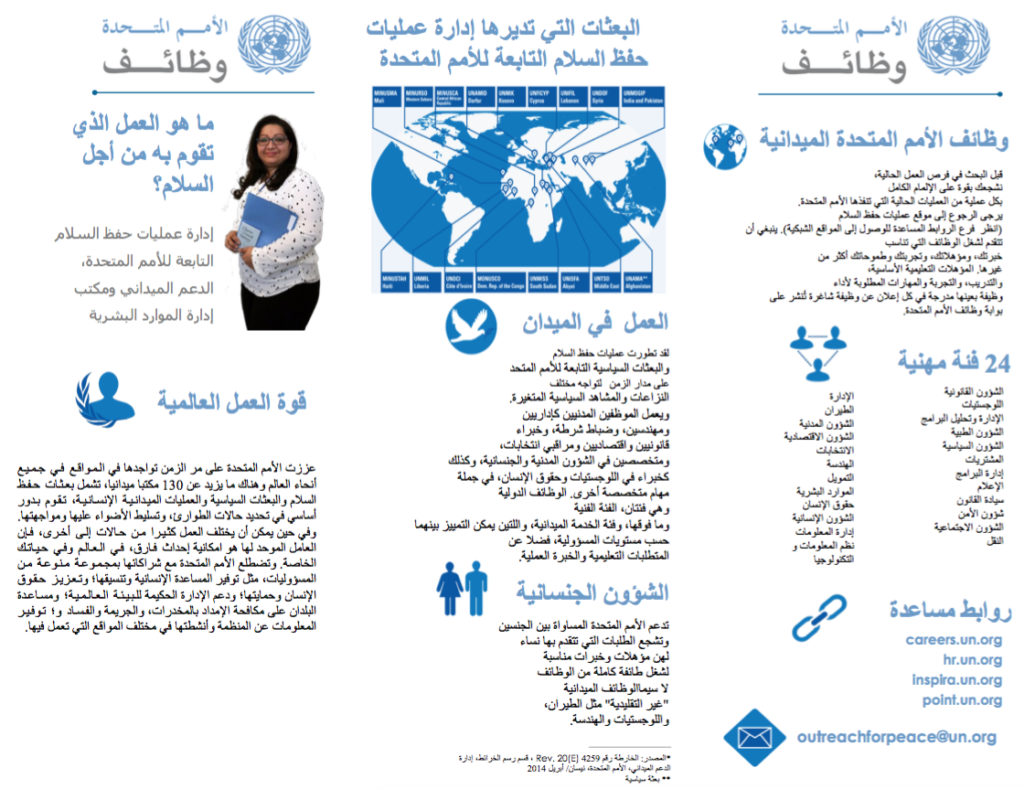
As peacekeeping has evolved to encompass a broader humanitarian approach, women have become increasingly part of the peacekeeping family.
Women are deployed in all areas – police, military and civilian – and have made a positive impact on peacekeeping environments, both in supporting the role of women in building peace and protecting women’s rights.
In all fields of peacekeeping, women peacekeepers have proven that they can perform the same roles, to the same standards and under the same difficult conditions, as their male counterparts. It is an operational imperative that we recruit and retain female peacekeepers.
Striving towards gender parity amongst UN staff is a priority for the UN Secretary-General. At the UN Headquarters in 2012, 48 per cent of staff were women and 52 percent men, with the most disparity showing at the mid and senior levels. In peacekeeping operations and special political missions, the figures are more challenging, with women making up only 29 percent of international and 17 percent of national staff.
Find out more in our gender statistics section to download a monthly breakdown of the number of male and female uniformed personnel working across our missions.
For its part, the Department of Peacekeeping Operations (DPKO) continues to respond to the call in all Women, Peace and Security mandates to increase the numbers of women in peacekeeping by advocating for the deployment of more women. However the ultimate responsibility for getting more women into the military peacekeeping lies with the individual countries that contributing troops and police.
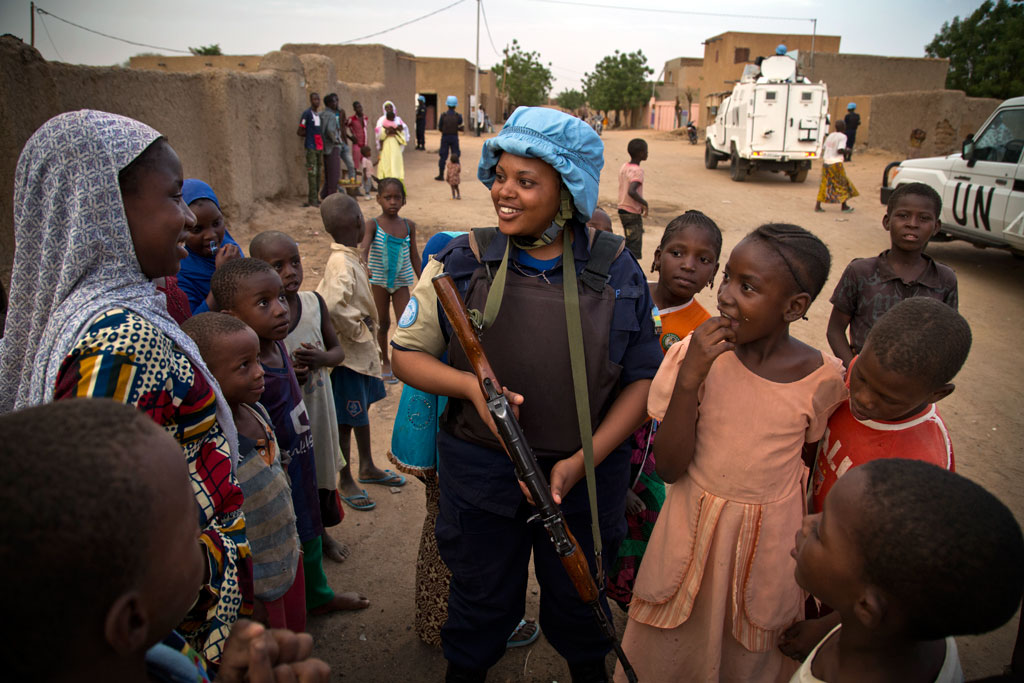
MINUSMA FPU Officers from Rwanda speak to the population as they patrol the streets of Gao, North of Mali.
Female peacekeepers act as role models in the local environment, inspiring women and girls in often male-dominated societies to push for their own rights and for participation in peace processes.
The increased recruitment of women is critical for:
- empowering women in the host community;
- addressing specific needs of female ex-combatants during the process of demobilizing and reintegration into civilian life;
- helping make the peacekeeping force approachable to women in the community;
- interviewing survivors of gender-based violence;
- mentoring female cadets at police and military academies;
- interacting with women in societies where women are prohibited from speaking to men.
The presence of women peacekeepers can also:
- help to reduce conflict and confrontation;
- improve access and support for local women;
- provide role models for women in the community;
- provide a greater sense of security to local populations, including women and children;
- broaden the skill set available within a peacekeeping mission.
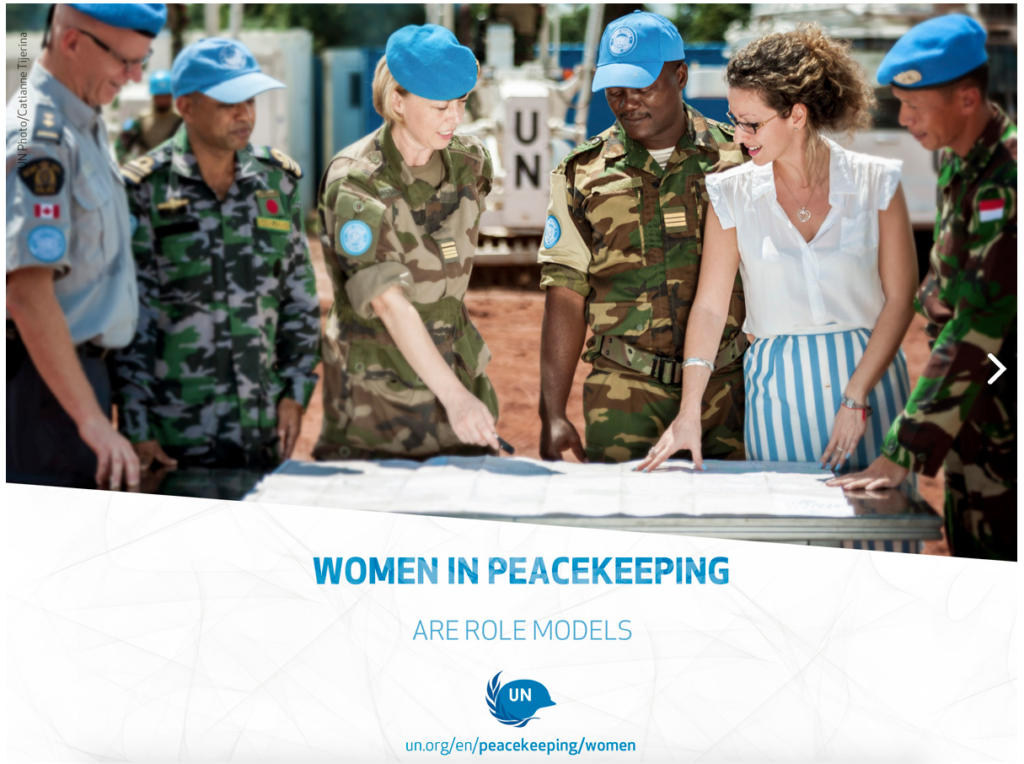
The United Nations Department of Field Support (UN DFS) provides staffing support services to about 30 UN peace operations, including missions led by the Department of Peacekeeping Operations and the Department of Political Affairs. These missions include 8,500 civilian personnel posts. Most of these civilian staff are recruited from rosters of pre-cleared candidates managed by the DFS Recruitment Section in DFS’s Field Personnel Division.
The DFS recruitment section manages “Generic Job Openings” to build and maintain rosters of candidates who are pre-cleared for rapid deployment. Roster candidates can apply to “recruit from roster” job openings that are advertised on https://careers.un.org. Every year, DFS puts out an annual schedule of roster vacancies. This year about 40 roster vacancies are being launched between Jan-March 2017.
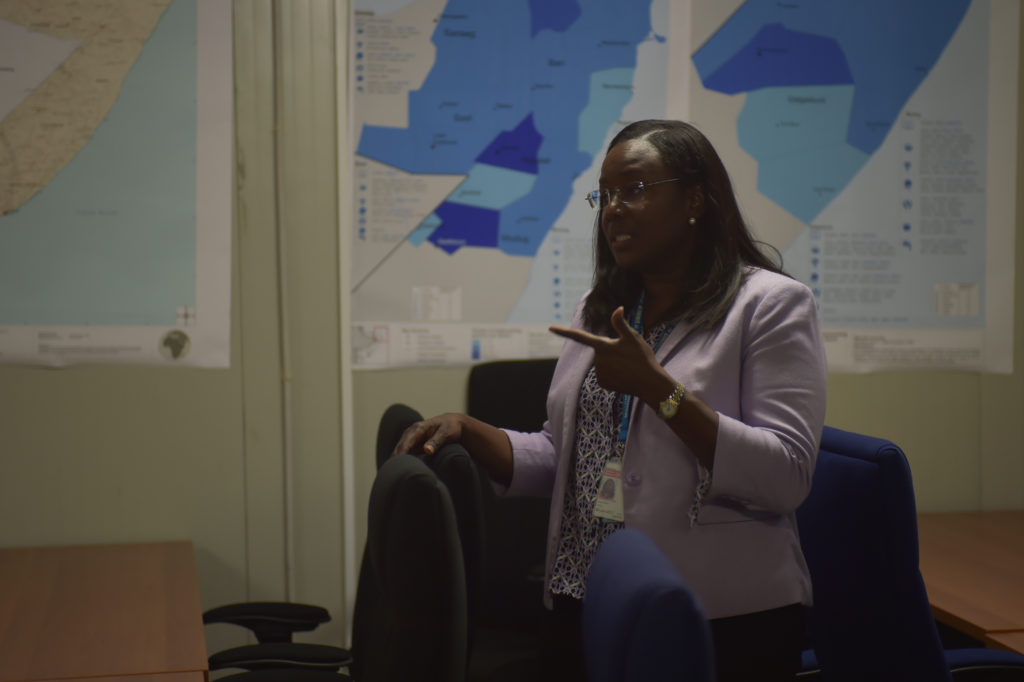
Various actors in the humanitarian community – including those representing donors, NGOs, and other international organizations – gather for the opening of the Drought Operations Centre at the United Nations compound in Mogadishu, Somalia, on February 27, 2017. UN Photo
UN peace operations are multidimensional and the peacekeeping missions are mandated with civilian and uniformed personnel capacities. Thus, in addition to the 8,500 civilians serving in peace operations, there are 100,000 uniformed personnel seconded by UN member states (approximately 85,000 military, 13,000 police, and 2000 military observers). Formerly seconded military and police personnel are important outreach groups for talent sourcing.
UN Peace Operations also include about 1,500 UN Volunteers sourced by UNV Programme Managers but paid for through the UN Peace Operations budgets. Former UNVs (UN Volunteers) are another important talent pool for UN peace operations rosters.
The budget for UN peace operations is about 8 billion USD annually.
Company Statistics
Date Established
Active personnel
